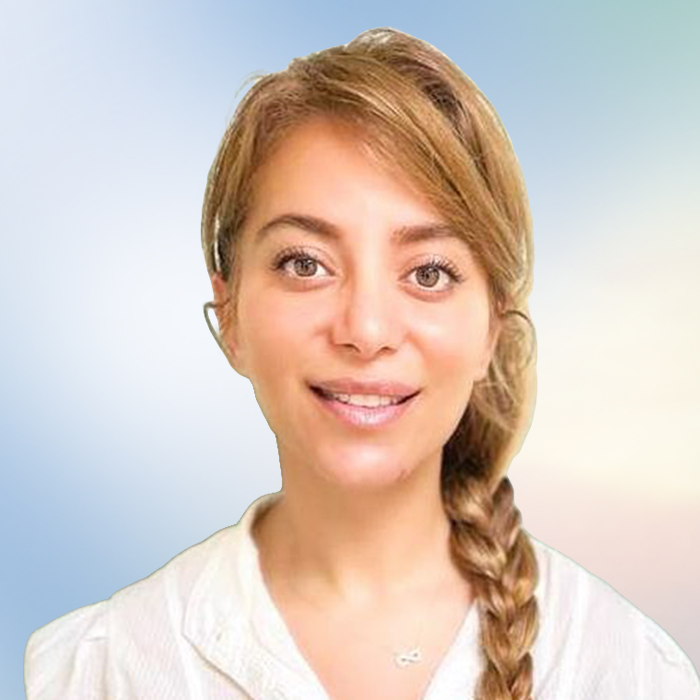Have a Question?
About PotentialMe
NDIS Registered Melbourne Disability Support
At the core of PotentialMe lies specialised NDIS-registered mental health occupational therapy. Our team of experienced occupational therapists is spread across Greater Melbourne, committed to empowering individuals of all ages and abilities to lead fulfilling lives by enhancing their independence, well-being, and overall quality of life.
We understand the importance of mental health and offer personalised support to help you manage and improve your well-being. As well as specialised NDIS-registered mental health occupational therapy we also offer support worker services, carefully matching participants with suitable candidates based on their preferences and needs. Additionally, our plan management services alleviate the administrative burden for NDIS participants, ensuring a seamless experience.

Meet Our Directors

Gary Kosover
Gary Kosover CA, co-founder of the PotentialMe Group, brings over a decade of expertise as a Chartered Accountant and Tax Agent. With a passion for helping people achieve financial independence and empowerment, as well as promoting mental health and wellbeing, Gary has led finance functions across diverse industries and operated his own successful accounting practice.
His commitment to these values and his desire to make a meaningful impact on clients' lives were the driving forces behind founding the PotentialMe Group. Gary holds a Bachelor of Commerce (Accounting & Finance), is a member of Chartered Accountants Australia and New Zealand (CA ANZ) and is continually enhancing his skills through professional development.
Outside of his professional pursuits, Gary enjoys sports, fitness, and cherishing quality time with his family.

Sarah Kosover
Sarah Kosover, MOT, is the co-founder of the PotentialMe Group, she has a passion for helping individuals achieve their full potential. With a background spanning adult psychiatric settings, community rehabilitation, and various sectors including government and non-profits, Sarah brings a wealth of experience to her practice. She holds formal qualifications including a Bachelor of Psychological Science, Postgraduate Diploma of Psychology, and Master of Occupational Therapy. Sarah continues to expand her expertise through ongoing study and is actively involved in professional bodies such as the Australian Health Practitioner Regulation Agency (AHPRA) and Occupational Therapy Australia.
NDIS Support
Our Specialties
The PotentialMe team specialises in a diverse array of expertise and knowledge, catering specifically to individuals with psychosocial disabilities, intellectual disabilities, acquired brain injuries, and autism spectrum disorder, understanding their distinct and specific support needs.
Intellectual Disability
Marked by significant limitations in intellectual functioning (e.g., learning, reasoning) and adaptive behaviour (e.g., social and practical skills), individuals may require support in various aspects of daily living, such as self-care, communication, and social interactions.
Acquired Brain Injury
Acquired brain injury (ABI) refers to brain damage resulting from events like traumatic injury, stroke, or infection occurring after birth. Its effects vary from mild cognitive impairments to severe disabilities impacting memory, concentration, and physical abilities. Rehabilitation and support services play a crucial role in recovery and adaptation to daily life.
Autism Spectrum Disorder (ASD)
A developmental disorder marked by challenges with social interaction, communication, and repetitive behaviours. Individuals may struggle with social cues, conversations, adapting to changes, and sensory sensitivities, benefiting from structured environments and routines.
Attention-Deficit/Hyperactivity Disorder (ADHD)
A neurodevelopmental disorder characterized by persistent patterns of inattention, hyperactivity, and impulsivity that interfere with functioning or development. It often presents in childhood and can continue into adulthood, impacting various aspects of daily life, including academic performance, work, and relationships.
Anxiety Disorders
Characterised by excessive worry and fear, anxiety disorders can significantly impact daily life. Individuals may experience physical symptoms such as increased heart rate and sweating, as well as difficulties with concentration and sleep.
Depression
Marked by persistent feelings of sadness, hopelessness, and a lack of interest or pleasure in activities. Depression can affect one's ability to work, maintain relationships, and engage in daily activities.
Schizophrenia
A severe mental disorder characterised by distorted thinking, perceptions, emotions, and behaviour. Symptoms may include hallucinations, delusions, and impaired cognitive function, necessitating comprehensive treatment and support.
Bipolar Disorder
A mood disorder characterised by extreme mood swings, including manic episodes of high energy and euphoria and depressive episodes of low energy and sadness.
Personality Disorders
Involving enduring patterns of behaviour, cognition, and inner experience, personality disorders can cause difficulties in relationships, work, and social settings. Treatment is usually comprehensive and long-term.
Post-Traumatic Stress Disorder (PTSD)
A condition triggered by experiencing or witnessing a traumatic event. Symptoms include flashbacks, nightmares, severe anxiety, and uncontrollable thoughts about the event.
Obsessive-Compulsive Disorder (OCD)
Characterised by unwanted, intrusive thoughts (obsessions) and repetitive behaviours (compulsions). These symptoms can interfere with daily activities and cause significant distress.
Are you or someone you care for an NDIS participant that has a mental illness and would like support in Melbourne or surrounds? Contact us at PotentialMe. We are here to support you every step of the way.




